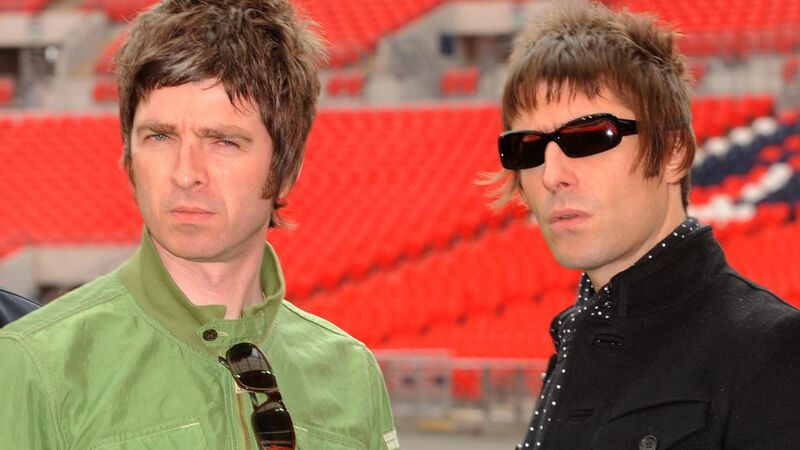Suzanne Harrington: Were the 1990s really better, or are we just romanticising the past?

Noel Gallagher (left) and Liam Gallagher (right) of Oasis, during a photocall at Wembley Stadium, in 2008.
When people hark back to the good old days, you can be sure they’re suffering from euphoric recall.
It’s not dissimilar to feeling broody because you’ve forgotten what giving birth actually feels like — pushing a camel through the eye of your very own needle — and only remember the good bits rather than the eye-watering reality.
People sigh about the olden days as they stare nostalgically into the middle distance, remembering the past as though it were a Richard Curtis romcom instead of something directed by Ken Loach.
This false memory syndrome afflicts every single generation.
We have an uncanny knack of looking backwards towards the era of our younger years as though it were a magical time — not because it was, but because our innate optimism had not yet been ground to dust from too much dream-crushing adulting.
We therefore have a built-in tendency to sugar-coat the remembered era of our youth as freer, simpler, happier, more innocent, less complicated. Was it though? Or was it just cheaper?
Just as older people look back on the 1950s as an extended song-and-dance scene from Grease rather than what Henry Miller termed “the air conditioned nightmare”, as a member of Gen X, I do the same in relation to the 1990s; I euphorically recall it.
(As do many people of my generation, if the reaction to Oasis reforming is anything to go by).
And yes, many aspects of the 1990s were great, economically at least — you could afford your rent, or even (whisper it) buy a house, or squat an empty building if you were too skint for the other options.
You could turn the heating on in winter, food banks didn’t exist, and far fewer had to choose between heating and eating.
People had disposable income, childcare was affordable, and adult children didn’t have to live at home until middle age, or move into upgraded sheds in the parental back garden.
Fascism had not made a populist comeback, Brexit was unimaginable, and Trump still a bankrupt businessman. There were no zero hours contracts, and conspiracy theories had not gone mainstream. The earth was not flat.
Those of us not into Britpop were dancing in fields and warehouses to repetitive beats, without camera phones in our faces, without selfies, without social media. There were no tech giants pushing fake news to suit their own smash-and-grab agendas.
See? Sounds nostalgic, doesn’t it? But economics aside, were the 1990s a golden era? Of course not. There’s no such thing, beyond the skewed interpretation of our own memories.
Thirty years ago women were still being monstered — at work, at home, in the media — as a matter of course; queer people were still being othered and bothered in public and private; gender binaries were still rigidly pink and blue; patriarchy resolutely unsmashed. All the -isms and -phobias were still at large, legally, socially, culturally.
And yet as we age, generation after generation sink into nostalgia, kidding ourselves the past was better. Why do we do that?
Is it because romanticising yesterday is easier than navigating today or confronting tomorrow?





